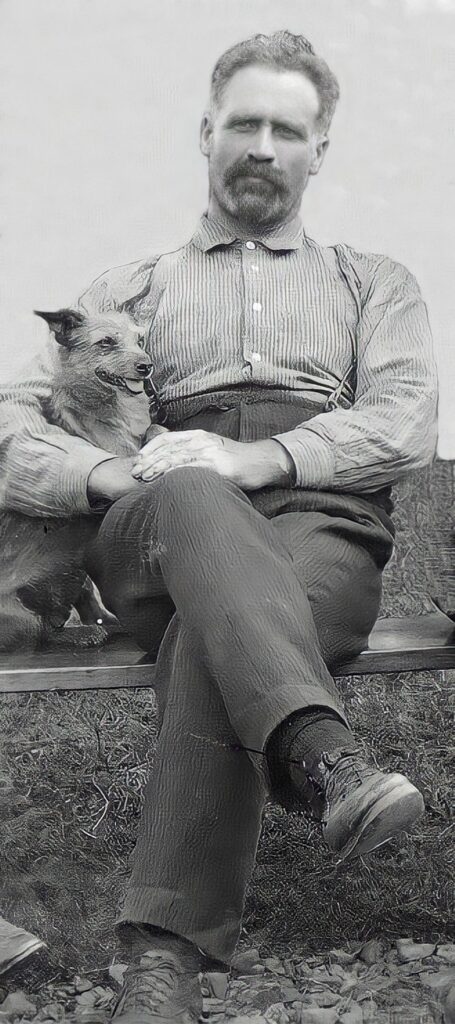Chapter 1
From the Ashes of Despair
New Year’s Day, 1893. Looking forward to a diverting, pleasurable time celebrating the New Year, the young, handsome, broad-shouldered Scotsman, William Irvine, invited several of his friends to a Pantomime event. He expected to be entertained and amused; instead, he left the theater feeling disappointed and empty. In fact, he was so depressed and disillusioned with his circumstances that he seriously considered taking his life that very night (to Kerrs, Dec. 4, 1921, TTT).
With few career options available in his small hometown of Kilsyth, Scotland, Irvine had followed in the footsteps of many of his male relatives, including his father, grandfather, uncles, brothers and cousins by becoming a collier (coal miner). Mining was a dangerous industry; miners faced possible injury or death daily.
At age ten in 1873, he went underground to work in the coal mines. Through grueling, hazardous, dirty work, he gradually rose to the position of General Manager of Baird’s Collieries at Bothwell, Lanarkshire, overseeing two pits and supervising many men. At age 30, making a good salary of about £300 a year, he had the best of prospects ahead.
Professional success aside, Irvine was far from content with his personal life. He disclosed, “1893, on January first, I thought on finishing my course, so much disgusted was I with what the world looked upon as a successful life. It seemed so hollow and disappointing, both in pleasure, place and power” (to Dunbars, Oct. 13, 1920, TTT). With his 30th birthday approaching on January 7, the future was weighing heavily on his mind. He longed for a career outside of colliery work.
Unknown to him, a solution loomed on the horizon that would exceed his wildest dreams. Within a week, he would make an unexpected choice that would transform his life. In Irvine’s words, the resolution to his dilemma was “quite unexpected and in a way that was quite foreign to any of my plans or calculations.” This decision radically altered the future course of his life and the lives of many others worldwide during the following decades.
It all started on a whim. The day after his 30th birthday, Irvine was invited by a friend to attend a revival mission conducted by well-known Evangelist Rev. John McNeill in the nearby town of Motherwell. During the service, Irvine was so deeply moved that he surprised himself by publicly deciding “to serve the Lord, no matter what it meant or cost” (to Wood, Jan. 9, 1946, TTT). This surprising small event would have a big impact on the future—the butterfly effect.
On the anniversary date of his spiritual decision, he would often reminisce, “My grandfather was born in 1803, my father in 1833, I in 1863, and born again in 1893 on 8th January” (to Newby, April 11, 1946, TTT). Irvine entered a lifelong pursuit of God. Before this time, he had taken little interest in the Scripture, explaining, “I followed the blind leaders of the blind ’til I was 30.”
Soon, his choice led him to abandon his career, give up his home, move in with his parents (where his illegitimate son may have resided) and attend the Glasgow Bible Training Institute for the next two years.
No one could have guessed how far-reaching the effects would be when Irvine zealously embarked on his spiritual odyssey. From contemplating on taking his life, he would go on to establish a revolutionary religious movement that rapidly spread worldwide.


